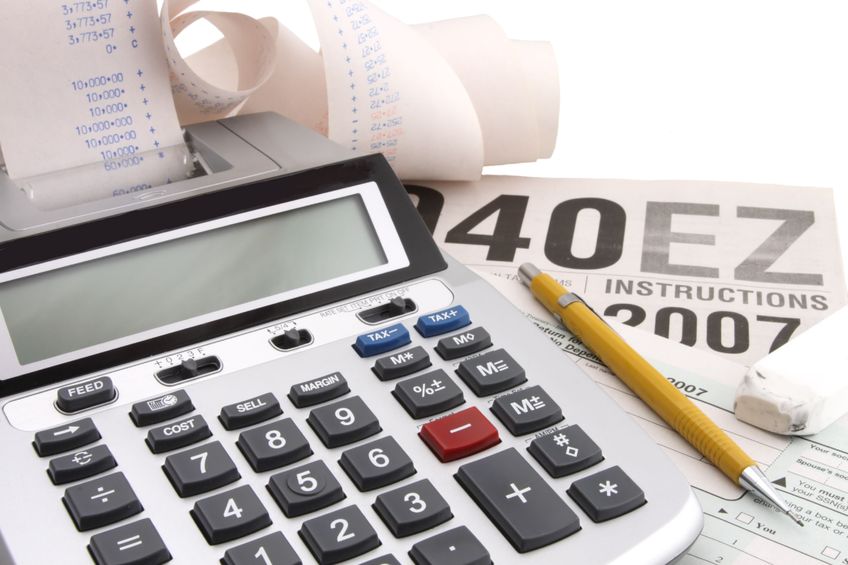Contributed by Jeff Watson
Everyone feels the impact of tax time, but small businesses especially feel the stress when looking to save money and maximize deductions and credits to help their bottom line. There are some ways that small business owners can better survive tax season, so here are crunch time tax tips for small businesses to help you keep your sanity intact.
Healthcare Tax Credits
Small businesses can use the healthcare tax credit to their advantage, especially because it is offered on a sliding scale. Form 8941 helps small business owners calculate their eligibility to claim the credit. It’s important to note that the small businesses that are best positioned to get the most benefit from the healthcare tax credit are those that employ fewer than ten full-time employees whose average wages fall below $25,000. Small business owners also may be able to carry forward the credit if their business did not owe taxes in that year. It’s also possible for small businesses to claim business expenses against a remainder of the tax premium if it exists. Checking into all of these health care tax credit conditions is well worth it, even at tax crunch time.
Claim Your Technology Purchases
Technology purchases such as computers, printers, and company vehicles are tax deductible, within certain limitations. Small businesses may be able to deduct the full cost during the year of purchase or split it between several years, depending on the purchased item. Small business owners also can deduct business-related software. Don’t overlook subscriptions to business-related websites and magazines, as they are fully deductible as well. The key is to remember that all technology purchases must be used solely for the small business. It’s also a good idea to know the difference between current and capital expenses and to be aware of the deduction amounts under section 179, as they change yearly.
Keep Track of Business Expenses Throughout the Year
One way small business owners can avoid crunch time is to track business expenses throughout the year, rather than waiting until the tax deadline. It is a good idea to enter business expenses into your accounting system as you incur them, both because it reduces your chances of forgetting to claim expenses and because it will save you valuable time as the April 15 deadline approaches.
Similarly, small business owners who claim mileage should consider using mileage-tracking apps for their iPhone or Android devices. These apps make it simple for small business owners to log their miles as they go, without needing to calculate mileage at crunch time.
Hire a Tax Professional
If you’re a small business owner feeling the stress of tax time year after year, it may be time to consult with a tax professional and take advantage of his services. Tax laws are complicated and change frequently, and the amount of time that it takes small business owners to research and determine which credits and deductions apply to their small business may not be worth it in the long run. Tax professionals know the law and are better equipped to identify tax breaks and deductions that small business owners may overlook. While tax professionals charge fees, they may be much less expensive than paying tax penalties or spending hours preparing the taxes without help.
Take a Home Office Tax Deduction
If you are a small business owner in the sharing economy, e.g. a dog walker or rideshare driver, then you may be able to claim a home office deduction. The fear of claiming a home office should be minimal, as so many Americans work from home and take the home office deduction these days. Whether you work out of your home in a home office or use part of your home in your business, you are eligible to deduct expenses related to the business use of your home. Just be sure that you use the space regularly and only for business-related activity. If that is the case, then you can write off rent, utilities, real estate taxes, repairs, maintenance, and other related expenses.
The good news is that small business owners taking the home office tax deduction can live in any type of residence, even if they are renters. Eligible residences include single-family homes, apartments, condos, and houseboats, among others. Home office deductions also apply to free-standing structures, such garages or barn spaces, as long as you meet the “exclusive and regular use” requirements. Again, be sure that you meet the conditions that your home office is the principal place of business and you are using the space exclusively for conducting business.
Taxes are stressful for everyone, but small business owners especially feel the pressure of crunch time tax deadlines. Using these tips for small businesses should help to alleviate some of that stress, especially if you are a small business owner who keeps accurate records and thinks about taxes all year long.
Jeff Watson is a self-proclaimed math nerd. He firmly believes that math is the language of the universe and that by understanding mathematical concepts, we can better understand the world around us. He started DataRangers.org in the hopes of providing resources, games, and web-based calculators to help people of all ages battle their math fears.





